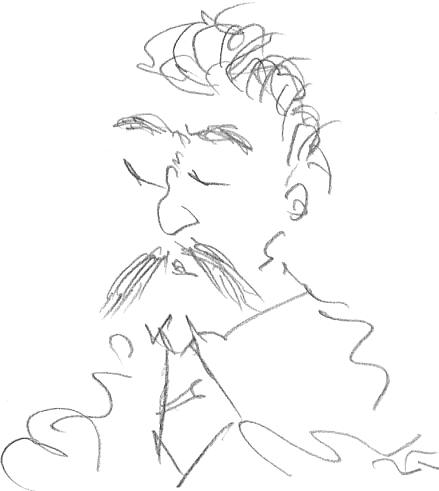A Symphony on Wheels
Willie was long gone by then, had written and gambled himself into the big time as only an orphan boy can do. But as dusk settled across the valley, Jack saw Willie too. He saw him because Willie was in New York writing in his hotel room and thinking about Fresno. Home is easier to remember from a distance. But your fingers still bleed on the typewriter keys, and you miss your dead father, whether he’s alive or not.
Jack rolled on, found a room to write and smoke and drink in, a place to take his pills. “Dear Willie,” he said, “I was there, I saw, I know.” Far away, Willie heard him and laughed, lit another cigarette. Jack rolled on, wrote a symphony on wheels. “Dear Willie,” he said, “Life is so fast, it’s too damn slow.” Then he threw gasoline on his dreams and set the world on fire. Willie warmed his hands.
This is what I do: I write my pain away, until it is replaced by a new and larger pain, and then I begin again. When I don’t have pain, I write about the pain I remember. This reminds me of the pain that’s sure to come. As the pain grows larger, so does the writing, and so does everything else, until the writing is the pain, and the pain is the writing, and the remedy and disease are one. At least that’s one scenario.
This is what I do: I systematically unravel the remedy until only the disease is left, and then I examine the disease under a bright light on my table until it confesses. When it does confess, I assume it’s lying. Or I unravel the disease until only the remedy is left, and then the remedy and I make small talk while the disease plans its next attack. That’s another scenario.
Jack drove himself to pieces. Willie rode his bicycle. Jack studied Zen. Willie read the Racing Form. Both went through a lot of paper trying to get to the bottom of their pain, trying to know it better, hating it but loving it more, choosing it over the dead stinking water of professionally endorsed sanity, the life that is nowhere everywhere eternally dying.
Back in ’69, Jack wrote himself into one final, bewildered corner, a sullen stranger to his work. He was a minor story served up as a lesson to the youth. “Well, what do you expect?” the old folks said as anarchy crowded in upon their lawns. “He should have known better. He should have gotten a job.” The poor fools, they couldn’t hear Mad Jack thumping on his wine jug, or the policemen marching to his beat.
The Armenian cemetery in Fresno is a field of bones. No one walks across that desert unchanged, though some are able to postpone the truth long enough to sell their souls or make one more deal — whatever it takes to keep the money coming in. The brooding boys are buried there, asleep in rows. Half of Willie’s ashes wait beside the tracks. It’s beautiful. There’s room to park your car and complain about the heat.
April 8, 2005
Previous Entry Next Entry Return to Songs and Letters About the Author

Also by William Michaelian
POETRY
Winter Poems
ISBN: 978-0-9796599-0-4
52 pages. Paper.
——————————
Another Song I Know
ISBN: 978-0-9796599-1-1
80 pages. Paper.
——————————
Cosmopsis Books
San Francisco
Signed copies available
Main Page
Author’s Note
Background
Notebook
A Listening Thing
Among the Living
No Time to Cut My Hair
One Hand Clapping
Songs and Letters
Collected Poems
Early Short Stories
Armenian Translations
Cosmopsis Print Editions
Interviews
News and Reviews
Highly Recommended
Let’s Eat
Favorite Books & Authors
Useless Information
Conversation
E-mail & Parting Thoughts
Flippantly Answered Questions